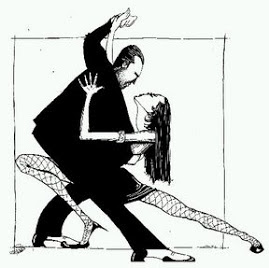This week we open it up with a Guest Post from David Felipe Alvarez Amezquita, a Colombian lawyer currently working on his PhD at University of Nottingham.
Explain that to me, ‘despacito’ –step by step-Copyright and politics. Why is important for an author to keep his rights?In support for the elections to the constitutional assembly that was recently voted in Venezuela, during a rally, President Maduro publicly used a transformed version of the song “Despacito”. The song, an unprecedented hit this year, has been used on many occasions, but this particular case has created the total rejection from its authors.Luis Fonsi said it clearly: “I have never been consulted nor I have given permission for the change or use of the lyrics of <<Despacito>> for political purposes…” See here (Spanish).This has not been the first case, though. During the recent presidential race in the US, the use of certain songs by Trump’s campaign was fiercely rejected.This has been a clear example of how the role that authors play in the protection of copyright goes beyond the mere economic interests and touches the limits of freedom of expression and the exercise of democracy. But, what if the rights of the author do not belong to her or him anymore?The General Comment 17, on “The right of everyone to benefit from the protection of the moral and material interests resulting from any scientific, literary or artistic production of which he or she is the author (article 15, paragraph 1 (c), of the Covenant)” published by the Committee on Economic, Social and Cultural Rights, highlights the fact that author’s moral interests should be understood as the protection of the “intrinsically personal character of every creation of the human mind”. This results in the right to be recognised as the creator of the works and the right to object any distortion, mutilation or other modification or derogatory action that would be prejudicial to author’s honour and reputation.Nevertheless, in some cases, moral rights can be transferred or eventually waived. The legal tradition in which continental copyright (author’s rights) is inscribed avoid this possibility. Instead, the legal tradition for common law copyright allows that these rights can be transferred or waived. For instance, most, if not all of the Latin American countries protect author’s moral rights under conditions of inalienability, non-waiver, and perpetuity. Instead, the US has developed a complex system of protection of moral rights to produce conformity with their adhesion to the Berne Convention, article 6.2. (See for example the case of visual arts, Section 106). The UK, on the other hand, prohibits the assignation of the moral rights but accepts their waiving under written contract (sections 94 and 87).Why is this important? Because moral rights have not been a peaceful issue in the international arena. One of the best examples of this is the express exclusion of these rights from the main elements of protection of copyright within the TRIPS agreement. By this way, moral rights have been situated outside of the international trade law. Instead, on the area of human rights, author’s moral interests have been enacted since the UDHR. How these two spheres interact on this matter is a question yet to be solved.In this video time lapse, it can be seen how different countries have accessed to the international systems that protect copyright and author’s human rights. It calls the attention that it was not until the late 1980’s that the US adhered to the Berne Convention and that once they did, in the next decade the TRIPS agreement was adopted and the cascade of countries following this was immediate. A similar cascade occurred when the ICESCR was adopted, but the US was out of it (this country signed the Covenant but has never adopted it). Unfortunately, the ICESCR lacks on swift tools of enforceability that the TRIPS agreement has.Nevertheless, protecting author’s moral interests can impact areas situated beyond commerce and closer to democracy. This shows that the interface between human rights and copyright towards the protection of author's fundamental rights is not something to disregard.Even if in some cases countries with a continental tradition have tilted their policies towards a possible transferability or waiver of moral rights, as in the case of works created by a commission or under employment, it looks like a weak author within society is bad for democracy and not only for business.
David's research is related to the protection of author’s
fundamental rights through copyright in a comparative perspective. He has been
awarded the COLCIENCIAS and the University of Tolima scholarships for doctoral
studies. He has worked as researcher and lecturer in HEIs in Colombia, as Head
of the Register Office of Copyright and as Copyright Advisor for
CERLALC-UNESCO.
David can be contacted here.












